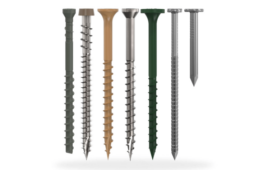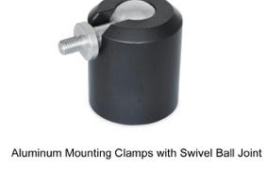Written by Julie Miller

Did you know that all self-drilling screws are self-tapping, but not all self-tapping screws are self-drilling?
Screws that have particularly sharp threads that can carve into material are often referred to as “self-drilling screws.” However, there is a distinction worth making when working with these types of screws, which can make a significant difference in their use and application.
Typically, the screws are broken down into two types that are defined as “self-drilling” or “self-tapping” — and these types are not interchangeable. Technically, both of these types of screws will tap their own threads (as most screws do to some degree), but the self-drilling screws are unique.
The tip of a self-drilling screw is shaped with a point and flute that resembles a drill bit. A notched area in the tip behaves as a reservoir to receive chips or filings as the material is carved away by the screw (when drilled). Thanks to this specialized tip, the self-drilling screw allows assemblers to skip the initial step of drilling a pilot hole.
In contrast, a self-tapping screw typically requires an initial pilot hole before the fastening process can begin. When choosing the correct type of screw, it is important to consider the thickness and hardness of the material.
Here’s a rule of thumb: All self-drilling screws are self-tapping, but not all self-tapping screws are self-drilling.
Essentially, a self-drilling screw is a self-tapping screw with the added feature of the drill point. With either type, the screws carve mated threads into the substrate for a tight fit. Both types of screws are typically made out of hard steel or stainless steel that has been treated to increase its hardness. The screw must be stronger and more durable than the material it will drill into to prevent failure of the joint or damage to the screw, material, or fastening tool.
These screws rarely require lockwashers or other types of locking fasteners to prevent loosening.
Self-tapping and self-drilling screws are the fasteners of choice for construction, HVAC, and other industries because of their ability to create a precise fit. They can be used to fasten metal, aluminum, wood, drywall, and plastic. Self-tapping screws are also suitable for thin sheet metal (one or two layers) and masonry applications.
These screws are available in a wide variety of sizes. Manufacturers often recommend applied force and driver motor speeds when fastening a self-tapping or self-drilling screw, based on the screw size.





I’m 70 and I learned something. I was going to order the wrong screw type.